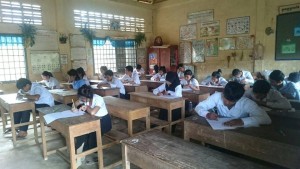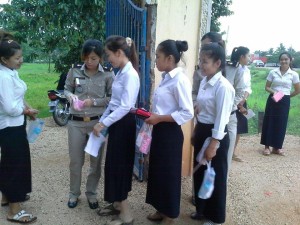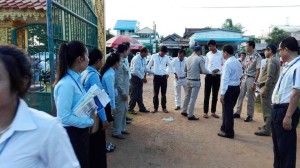This part (42), Mr. Sophan Seng continued to analyse on the Reform of Cambodia Education. After the wake of war, education has remained important factor for this country to leapfrog herself from post-cold war country to peace and developed country, or from revolutionary-socalled country to democracy country equipped by Rule of Laws and Fair Share of National Wealth according to sustainable development pragmatism.

Again, Mr. Sophan highly articulated on quality of education system and quality of school teachers. In Cambodia, besides of fundamental concept of “better knowledge persons to teach less knowledge person” has remained omnipresent presently existing in Cambodia modern school compounds, the teachers’ pedagogy is seen out-of-date omnipotently.
For instance, this likely pro-violence country has not yet trained teachers to be anti-violence agents at schools at all. Teachers, in Cambodian concept, they are the second parents of all Cambodian children. While children are affected by violence-parenting style of ingrained traditional home-raising parenthood, teachers are not well trained in handling domestic violence in schools at all.
Recent incident of a school teacher commanded a male student to unclothe a female student in front of the roommates in the way to punish her because of her inability to answer assignment question, is one of the thousand punishment ways Cambodian teachers have always used to teach them in schools.
This sexual violence is among other four domestic violences ie. physical violence, verbal violence, financial violence, and emotional violence. School teachers are not taught to handle with all these violences and most of time they are the violence perpetrator rather than a violence stopper/investigator/observer.
Those teachers are not different from public politician figures whose education credentials are not counted to getting their way into those important public servants and high prestigious public posts. As the matter of fact, Cambodia education has been mocked by the no education or less education persons have become a player of role model in the public eyes of Cambodian people. Currently, many top officials including Premier are not graduated high school. Currently, majority of teachers are counted by training teachers graduates, they have not completed post secondary education at all.
When this important strata of social fabric are remained weak, the future of Cambodia is deems murky.



